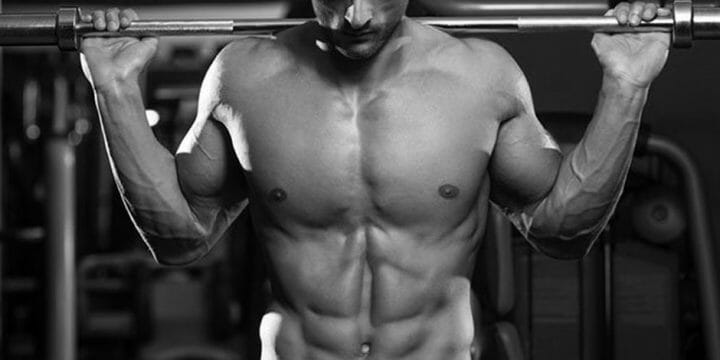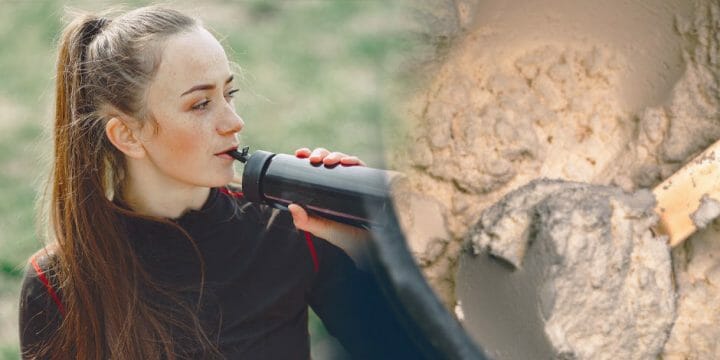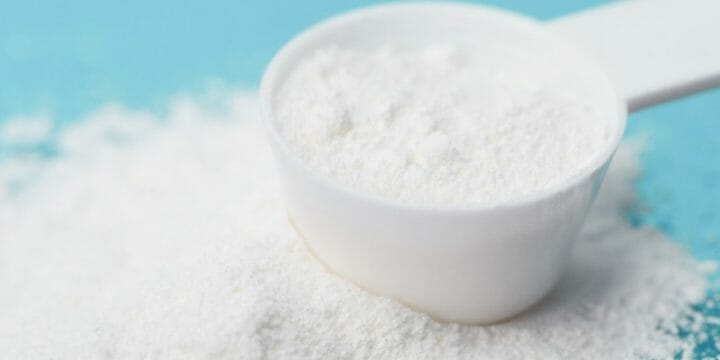Many energy drinks, similar to soda, contain ingredients that may be harmful.
However, Bang energy drinks have been gaining popularity recently and stand out, mainly because they’re marketed as having super creatine.
After my clients asked me my stance on this energy drink, I've been doing thorough research on the drink, its ingredients, and whether it is healthy.
Quick Summary
- A Bang energy drink contains approximately 4 to 32.5mg of creatine.
- This drink contains super creatine, the world’s only water-stable creatine.
- Bang energy drinks contain about 0.84 to 1.21 mg of creatine per serving, a relatively small amount compared to typical creatine supplements.
- I find the addition of creatine in Bang intriguing, but I'm cautious about its benefits compared to traditional creatine supplements.
Does Bang Have Creatine in It?

Yes, Bang does have creatine in it. Based on the ingredients list, creatine content, including other amino acids, might range from 4-30mg.
Most energy drinks contain small amounts of creatine — 0.84 to 1.21 mg (other amino acids not included).
This amount isn’t harmful but can help enhance training and workouts.
However, VPX, the company behind Bang energy drinks, hasn’t disclosed how much creatine the drink contains, which was a red flag.
While it is safe to consume up to 5 mg of creatine per day, too much of it can have side effects, such as weight gain, diarrhea, kidney problems, and more [1].
Bang Energy Drink Ingredients

Bang boasts of having zero sugar, zero calories, and zero carbohydrates, but having supplements, such as caffeine, creatine, and BCAA, which athletes take.
Before I go into depth on all of these, especially creatine and super creatine, let’s check what Bang energy drink contains.
Bang drink nutrition facts for 16 ounces:
- 0 calories
- 0 total fat
- 0 saturated fat
- 0 trans fat
- 0 cholesterol
- 40 mg sodium
- 85 mg potassium
- 0 carbohydrate
- 0 dietary fiber
- 0 sugar
- 0 protein
The daily value (DV) recommended amount of vitamins:
- Vitamin C: 50%
- Vitamin B12: 25%
- Vitamin B6: 25%
- Magnesium: 2%
- Niacin: 25%
Bang energy drinks also contain traces of these (in undisclosed amounts):
- Super creatine
- Vitamin C
- L-leucine
- Potassium phosphate dibasic
- Magnesium chloride
- Acesulfame potassium
- Sucralose
- Natural flavors
- Sodium benzoate
Let’s break down the nutrition facts of this artificially-sweetened zero-calorie energy drink:
- No protein
- No fiber
- Some vitamins
If you’re wondering how Bang energy drinks taste so good if they don’t have any sugar, the answer is sucralose. Sucralose is an artificial sweetener 320 to 1,000 times sweeter than table sugar.
Bang contains vitamins B and C, but these may not offer significant benefits unless you have specific dietary needs.
Unless you’ve got some previous chemical knowledge, most of these ingredients won’t mean much to you.
That’s why I’m breaking down the essential ingredients, starting with super creatine.
Super Creatine

Before we talk about super creatine, let’s see what creatine is. Muscle cells naturally produce creatine to help with energy during high-intensity workouts.
It’s one of the most popular supplements with athletes and bodybuilders because it can:
- Speed muscle growth
- Lower blood sugar levels
- Improve brain function
- Increase energy production
A study from the National Library of Medicine has shown that creatine supplementation improves workout performance by 10% to 15% [2].
VPX claims that super creatine is a form of creatine bonded to L-Leucine, an amino acid that builds proteins in the body. It promotes super creatine as the “only world’s water-stable creatine.” This means that super creatine can easily cross the blood-brain barrier and help with mental focus. Super creatine's unique structure may offer improved stability and solubility compared to regular creatine.
VPX isn’t forthcoming with how much creatine the energy drinks contain, but judging by other ingredient quantities, chances are there are about 4 to 32.5mg of creatine and other amino acids.
The safe dose is around 5g a day, which means the amount of creatine in Bang is unlikely to have any significant effects.
Related: How Much Creatine Should You Take per Day?
Super Creatine Benefits
Super Creatine does have benefits if you consume it both before and after exercise, such as:
- Speeds up muscle recovery both during and after working out
- Helps with mental focus while exercising
- Boots gym performance
Note: These benefits are mainly expressed when combined with creatine and super creatine.
As VPX says, super creatine is water-soluble, which is another important benefit, as it means the body can absorb super creatine much faster than regular creatine.
It is also much faster absorbed by the brain, which helps with mental concentration.
Remember, the FDA has checked none of these benefits, so if it works for you, great. If not, switch to something else.
Aside from the liquid supplement, you can try out other forms, such as our trusted high-quality creatine powders.
Caffeine

The drink contains 300 mg of caffeine per 16 oz. This amounts to 3 cups of coffee in only one can of energy drink.
A review of 700 studies on caffeine consumption found that 400mg is the safe daily dose for healthy adults [3].
Drinking more than 400mg of caffeine likely won’t cause an overdose, but having 300 mg in a matter of minutes can cause jitters and anxiety.
Regarding creatine and caffeine, it’s been proven that caffeine reduces the effectiveness of creatine.
Considering how much caffeine Bang beverages have has left me questioning its creatine benefits.
BCAA

BCAAs are branched-chain amino acids, and it’s a very popular supplement with athletes.
There are three kinds of BCAAs found in energy drinks:
- Leucine
- Isoleucine
- Valine
BCAA benefits include:
- Prevent muscle wasting
- Reduce fatigue
- Help muscles grow
However, same with creatine, the levels of BCAAs aren’t stated. In all likelihood, they’re minimal and will have minimal beneficial effects.
Read More: BCAA vs Creatine - What's The Difference?
Bang Energy Drinks Super Creatine Lawsuit

In 2018, VPX Sports was sued by ThermoLife International, LLC, a sports nutrition and supplements manufacturer. ThermoLife claimed that VPX is deceiving the world and its users by false advertising.
“Super Creatine is NOT creatine, nor is it a source of creatine, and despite their intentional false advertising, VPX and Owoc know this.”
- Ron Kramer, ThermoLife founder
Their complaint is mainly about super creatine, and they claim that:
- Super creatine is not creatine
- Super creatine doesn’t form creatine when ingested
The complaint also states that this isn’t a bioavailable form of creatine and that VPX takes advantage of its users who believe that super creatine has the same function in the body as creatine does.
FAQs
Are There Benefits To Bang Energy Drinks?
Yes, there are benefits to Bang energy drinks if consumed in moderation. Because it has 300mg of caffeine, it’s one of the strongest energy drinks on the market, so if your body has a high caffeine tolerance, it could be a good choice for you.
What Are Alternatives To Bang Energy Drinks?
The alternatives to Bang energy drinks are Red Bull, Monster, Mountain Dew, Rockstar, Burn, Hi-Tiger, and Reize. Most of these products have different flavors and contain caffeine and sugar, apart from Reize, which is sugar-free. It’s a good idea to check other fan reviews and experiences with these products before trying them yourself.
Are Bang Drinks Healthy?
Bang energy drinks are not healthy to consume. They contain supplements such as BCAA and caffeine, it is sugar-free and it contains no calories, but Bang drinks are not healthy and safe for everybody’s health.
References:
- https://www.webmd.com/vitamins-and-supplements/creatine
- https://www.ncbi.nlm.nih.gov/pmc/articles/PMC2048496/
- https://www.sciencedirect.com/science/article/pii/S0278691517301709
About The Author
You May Also Like







Can Bang energy drink aid in weight loss also?
How many grams of creatine in a Bang can?